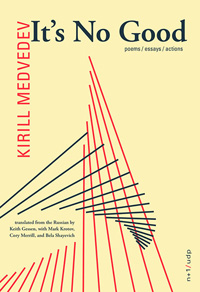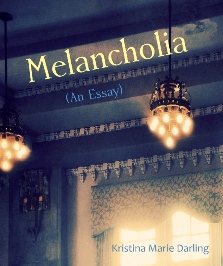 By Kelman Out Of Pessoa
By Kelman Out Of Pessoa
by Doug Nufer
Les Figues Press, 2011
194 pages / $15 Buy from Les Figues or SPD
Why write a conceptual novel? Is conceptual writing meant to be read? Is conceptual writing truly “conceptual” in the way conceptual art was? If conceptual art was more to be read than it was to be seen, then, following the same “logic,” is conceptual writing more of a spectacle than it is a reflection? Isn’t writing by and large dematerialized anyway? Doesn’t reading atomize as much as it coheres? Isn’t the novel ultimately only intelligible in terms of a material transcendence? Is Douglas Nufer’s By Kelman Out Of Pessoa more Sol Lewitt or more Rene Girard?
I think the latter rather than the former. I think the conflation of Oulipian constraint and conceptual aesthetics has become too easy. I think schematicism need not make a virtue of the perfunctory. I think that novels like Nufer’s, or Harry Mathews’ Cigarettes, can simultaneously be novels and “anti-novels”: mere pretexts or engines for putting one word, then one sentence, then one paragraph, then one chapter, after another, but also “subjective experiences” that offer readers traditional pleasures and vertigos. I think that the author’s and the reader’s processes have to collaborate in order to complete the novel, and this book; they are symbiotic, even if one antedates / predates (upon?) the other. I think all novels—and, by extension, all characters, all points-of-view, all settings, all symbols, all themes—are thus accidents of time, eruptions of advantage and disadvantage. I think about Michel’s capture in Bresson’s Pickpocket, how it is a direct result of his notion of who he is in relationship to someone else who, in a context explicitly over-determined by competitiveness, is not quite whole or anything beyond a phantom. I think that readers always have a hand out for the last word.
Louis Bury, in his introduction, writes: “Doug Nufer wrote By Kelman Out Of Pessoa by going to the track once a week for an entire horseracing season, placing bets on behalf of three fictional characters’, the results of which, in turn, dictated the structure and plot of the novel.” Louis Bury, in his introduction, writes: “The difference between the type of order play produces and the type of order art produces is that the former tends towards reductive simplicity, the latter towards complexity, even entropy.” Louis Bury, in his introduction, writes: “Each of the novel’s principal literary influences can be seen as the embodiment of a novelistic desire. Kelman: the desire to write about horse betting and have it be something other than genre fiction. Pessoa: the desire to make an elaborate show of masking and unmasking aspects of oneself.” Louis Bury, in his introduction, writes: “Blaise Pascal’s famous wager—that it’s a good bet to believe in God because if you win you gain everything and if you lose you lose nothing—was a bet, ultimately, not about God’s existence but about the nature of life itself: that we humans possess more purpose and meaning to our movements than mere game board tokens.”
What are we really saying when we say that a work of art, like a novel, “moves us”? What are we really saying when we say that we want to improve ourselves? What are we really saying when we say we’ve been a victim of bad luck? What are we really saying when we say that we’ve sabotaged ourselves? What are we really saying when we say that the story means what it does when it comes to its end? What are we really saying when we say, “Don’t worry; I’ve got a plan.” What are we really saying when we say we want to be more or less like so-and-so? What are we really saying when we say that there is a real world? What are we really saying when we say to writers: “Small is beautiful”? “Kill your darlings”? “Find your voice”? “Write what you know”? “Don’t lose your reader”?
READ MORE >








